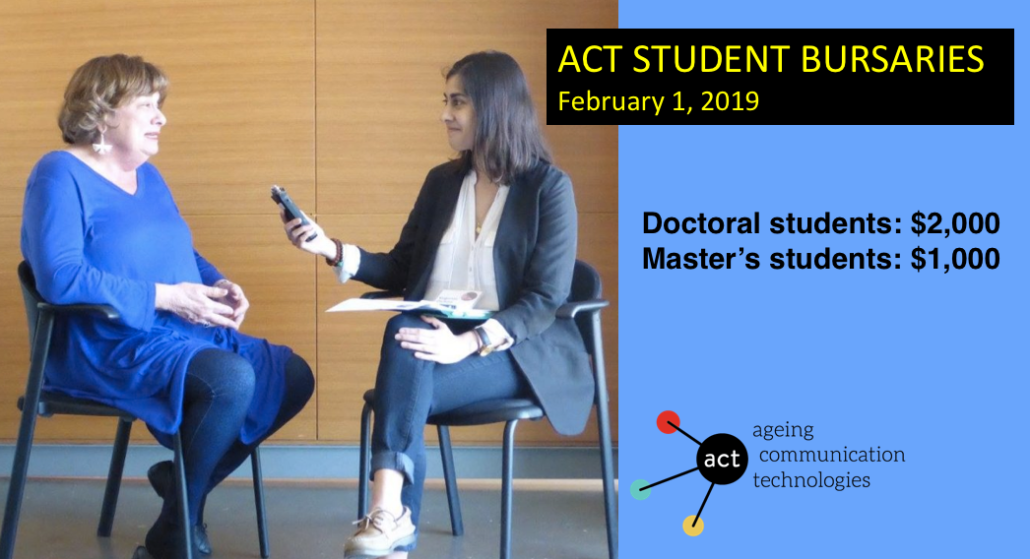“B/OLD: Aging in our city-Vieillir dans notre ville”
By Bipasha Sultana
Thinking about age-friendly cities across communities
Put forth by Concordia’s ACT (Ageing, Communication, Technology) and engAGE, the Centre for Research on Aging, B/OLD is a trilingual (English, French, LSQ) event series that is open to the public, offering a multitude of thought-provoking events. These include panels and keynotes, creative workshops and activities, as well as art exhibitions and kiosks, some of which will be held in Concordia’s newly launched 4th Space.
One of the primary aims of this event lies in forging intersectoral connections between academic researchers, community groups, policy makers and local citizens. This is reflected in panels featuring an eclectic list of speakers, including a discussion between community leaders and city politicians, titled “What is an age friendly city?”
Kim Sawchuk, director of ACT and professor in the Department of Communication Studies, points out: “Our goal is to bring community groups, decisions makers, researchers, activists and citizens into conversation with one another. We hope that B/OLD is the start of a conversation.”
B/OLD also aims to bridge the age-segregation that has falsely come to define certain spaces, particularly campus spaces often occupied by – but by no means restricted to – young adult students.
Provoking conversations through fun activities
In an effort to disrupt the age-specific homogeneity of campus spaces, creative workshops and activities offered during B/OLD are tailored to all age groups, with a keen focus on issues unique to the older adult population. For instance, a Graffiti Workshop invites participants to engage in an intergenerational artistic collaboration to address the question of “who is allowed to leave their mark on the city?”
Visitors can also look forward to a much-anticipated “Escape Room on Elder Abuse”. Escape rooms are live-action, collaborative games that ask players to search for clues in order to solve physical and mental puzzles as they move through a room. Solving the puzzles leads players to exit the room and win the game. B/OLD’s escape room was designed to offer an accessible and engaging way for players to identify clues of abuse commonly experienced by vulnerable older adults, with the end goal of recognizing and symbolically “escaping” the game’s cycle of abuse.
Exploring a sensitive topic like elder abuse through an Escape Room helps participants engage in active, hands-on learning to recognize the subtleties of elder abuse.
According to Shannon Hebblewaite, director of engAGE and associate professor in the Department of Applied Human Sciences, “B/OLD is a collaborative effort to its core. We are pleased to create opportunities to exchange knowledge and learn from one another. By bringing together older adults, researchers, and policy makers to share their perspectives on aging in the city, we expect some lively conversations that will help ground research and practice in a better understanding of older people themselves.”
B/OLD: Aging in our city, is open to the public and will be taking place on May 16th and 17th throughout the SGW campus and in the 4th Space. You can find out more about the event’s programming on the B/OLD website.


 From July 3 to 10
From July 3 to 10